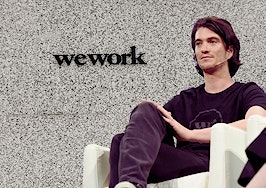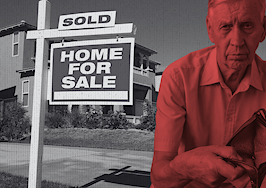Not long ago, prospective young apartment renters toured spaces wanting to learn about square footage, kitchen upgrades and common areas such as pools and fitness rooms. These features, of course, remain important.
However, when giving tours now, our managers notice something else. Prospective young renters use their phones to test WiFi speeds in the property’s common areas. High-speed internet is a priority to young renters, who have prompted us to refresh the future of multifamily housing.
Since homebuying could remain challenging for a while, millennials and Gen Z will choose to live in multifamily spaces longer. Millennials currently comprise the largest renter demographic, but Cushman & Wakefield projects that Gen Z will constitute 44 percent of the rental market by 2030.
Further, they might rent for longer. A 2022 Freddie Mac survey found that 34 percent of Gen Z respondents consider owning a home beyond their financial reach. That’s 7 percent higher than in 2019.
The reasons weren’t surprising and included high home prices and interest rates, student debt, and the difficulty of saving for down payments. According to Redfin, homebuyers need a salary of about $114,000 to afford the median-priced home of $420,000.
If they’re going to rent longer, millennials and Gen Z want more than an apartment. They seek a place to live, work, network and socialize. To that end, they have four key property requirements: technology, community, sustainability and experience. To reach and retain young renters, property managers must prioritize these factors.
Technology
The digital generations want to source, tour, sign, pay for and maintain their apartments via smartphone. They want to unlock doors and gates, enable security systems, adjust thermostats, and control lighting via apps. Further, according to the Urban Land Institute, they’re willing to pay for these conveniences — $35 to $40 per month in extra rent or amenity fees.
Little wonder that the proptech market carries some stratospheric forecasts, potentially reaching $32.2 billion by 2030. “The multifamily industry is at a critical point for technology adoption and customer experience enhancement,” according to a 2023 National Multifamily Housing Council tech survey.
New construction is trending toward these sorts of smart apartments, though older properties can easily be updated to include technology. Connectivity is key to retrofitting properties with smart locks, controls and sensors.
WiFi-as-a-service, or WaaS, is another surging market, poised to reach $10.1 billion by 2026 as it provides reliable, high-speed internet at scale for growing communities. As property managers know, the most requested amenity is move-in-ready, high-speed internet access.
Community
Digital life can be isolating and splintering, so young people seek community online. They also want to belong where they live. Research shows that renters who build relationships at home are more likely to renew leases. Multifamily housing experts call this the “Friendship Factor.”
According to the National Apartment Association, renters will pay up to $200 more per month to live near friends. Real Page found renters are 8 percent more likely to renew if they made one friend where they live.
Community also includes work. With remote and hybrid work still popular (though Gen Z could change that, according to LinkedIn), residents appreciate co-working solutions, particularly those who live in smaller units. Solutions include common areas with work pods, private conference rooms for video meetings, and mixed-use quiet spaces to work or retreat.
“All of our new developments and repositioning projects are to have a significant coworking aspect,” Phyllis Hartman of the Hartman Design Group told Multi-Housing News. “I don’t think it matters whether they are urban or suburban.”
Sustainability
Gen Z, which Gallup defines as those born from 1997-2011, is a tech-forward generation that saturates itself with awareness. In particular, they value, and even prioritize, sustainability. According to the World Economic Forum, Gen Z is more likely than baby boomers, Gen Xers, and millennials to rate sustainability above branding when purchasing, and they’re bringing that ethos home.
Gen Z considers green communities healthier and more appealing; 61 percent of young renters are willing to pay higher rents in sustainable communities, according to ApartmentData.com. “Sustainability is the new amenities race,” Noel Carson of The Bozzuto Group told Multifamily Executive.
Sustainability takes many forms: energy-efficient materials and appliances, designs that reduce carbon output and waste, smart sensors to regulate energy loads, and space shifted from parking to ride-sharing. Design firms are getting creative in their approaches.
In 2021, DAHLIN won an Empowered Living Design Competition in Salt Lake City for MOD HIVE, a collection of sustainable tiny homes clustered into a village. The plan uses less land and resources, incorporates natural elements, and brings more “housing diversity” to the region, according to DAHLIN.
Experience
Pools and playgrounds aren’t enough for today’s discerning residents. The New York Times recently highlighted some creative ways in which multifamily properties are enhancing the resident experience. They can offer classes in dog yoga, woodworking, or stargazing; movie nights in a communal theater; shared gardens; or wine tastings in a dedicated cellar. One complex included rehearsal space for musicians and artists.
Venn, a resident experience company, calls this “The Experience Era,” in which renters take a holistic view of their property. Amenities matter, but experiences are gaining popularity.
Popular experiences, according to Venn, can include cleaning and delivery services, wellness programs, and fitness subscriptions. Rooftop pools blend experience and community. Outdoor amenities such as community gardens and dog parks bring people together in experiential settings.
The “third place” is an intriguing concept that multifamily housing can incorporate as well. The theory suggests that people need a third place to inhabit beyond home and work. This third place is open for exploration and experience.
In a multifamily property, third places can include mixed-use spaces, perhaps including a coffee shop or convenience store, and multi-use community venues, both indoor and outdoor. Third places blend community and experience into vibrant residential opportunities.
Millennials began reshaping multifamily housing in compelling ways, and Gen Z promises to accelerate that change. Property managers must be ready. Those who prioritize technology, community, sustainability, and experience will ensure property retention and resilience, maximize revenue, and provide residents with a place to call home.
Michael H. Zaransky is the founder and managing principal of MZ Capital Partners in Northbrook, Illinois. Founded in 2005, the company deals in multifamily properties.
Get Inman’s Property Portfolio Newsletter delivered right to your inbox. A weekly roundup of news that real estate investors need to stay on top, delivered every Tuesday. Click here to subscribe.












